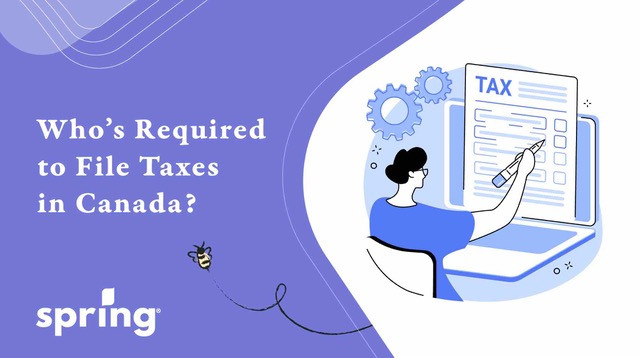The tradelines on your credit report, whether they are positive or negative, only stay on your credit report for a certain period of time as well. An example of a negative tradeline that stays on your credit report for a certain period of time is collections. The way collections works is a little tricky and there are some rules to how it works in regards to your overall credit report. It does, however, stay on your credit report for a total of 7 years.
What are Collections and How Do They Work?
Collections happen when you are unable to keep up with your payments and/or have too many missed payments on a debt. The lender then contacts a collection agency to try and recover the unsecured debt from you. Essentially, a debt collection agency works on behalf of the lender to recover as much money as they can from you. They usually start contacting you through letters and then move onto phone calls.
Once a debt has been sent to collections, it will then be marked on your credit report. As soon as that debt ends up hitting your credit report, the damage has been done. While the debt still needs to be paid, whether you pay the debt collector or not, it will not affect your credit score anymore than it already has.
Do Collections Ever Go Away in Canada?
Well collections don’t necessarily ever go away, especially if you don’t pay, it will fall off of your credit reports after so many years. How long depends on the credit bureaus but the general guideline is 6-7 years. In fact, this is the general guideline for all bad credit, not just collections.
Even if collections are still on your credit reports, you can still outweigh the negative with more positive tradelines on your account and work your way to having and maintaining a good credit score.
With collections, it’s a common thought that paying them makes them disappear. Unfortunately, that isn’t the case. Paying your collections doesn’t affect your credit report at all. It will stay there for the full 6 or 7 years, depending on the credit bureau. That said though, it is better to pay off your collections. There are times, like when buying a house, that the fact you didn’t make the payment could be an issue.
Transunion
In Canada, in any province, any negative credit information (including collections) stays on your credit report for 6 years from the date of the first delinquency.
Equifax
Your Equifax credit report keeps all negative reports on your credit report for 7 years from the date that they were filed. The only exception to this is in P.EI where it can stay on your credit report from anywhere between 7 to 10 years.
Do Collections Automatically Fall Off After 7-10 years?
Whether you pay your collections or not they will automatically fall off your credit report once the allotted time has passed for the credit bureau. While this is the case, it is still highly recommended that you do pay back your collection amounts. While they are still on your credit report, your collection amounts will state whether they have been paid or not.
Can a Collection Agency Remove an Entry from Your Credit Report in Canada?
Yes they can. If you are actively dealing with debt collectors you are able to negotiate to have it removed from your credit reports as part of your debt settlement. Other than having the item in collections fall off on its own, this is the only way to get rid of it.
Is it True That After 7 Years Your Credit is Clear?
No, your credit is revolving. Negative reports will stay on your credit report for the allotted amount of time depending on the type of negative report. Positive reports will stay on your credit report, sometimes indefinitely. This isn’t necessarily bad, you want to have as much positive information on your credit report as possible.
Having a clear credit score is often difficult to build back up so it wouldn’t be ideal for it to clear every 7 years. You do need some form of credit on your credit report in order to build more credit.

How Long Does it Take for Something to Come Off Your Credit Report After it is Paid Off?
That really depends on if it’s a positive or negative tradeline. Each kind of credit file comes off based on how long it has been on your file. It has nothing to do with whether or not it is paid off.
Paying off a positive credit tradeline boosts your credit score so leaving it on your credit report is actually good. Negative tradelines do not boost your credit score once you pay them off, but it is easier to build your credit once you no longer have it on your report.
How Long Do Consumer Proposals Stay on Your Credit Report?
How long a consumer proposal stays on your credit report depends on a few different facts but it’s mainly based on how long it takes you to pay it off. Transunion takes it off your credit report either 3 years after all of the debts in the consumer proposal are paid off or 6 years after you sign it. Equifax takes it off your credit report 3 years after all of the debts in the consumer proposal are paid off.
What is a Consumer Proposal?
A consumer proposal is essentially an agreement set up by a licensed insolvency trustee. It basically states that the creditors allow you to pay a percentage of what you actually owe. The main reason that creditors would agree to a proposal is because if you filed for bankruptcy then they wouldn’t receive anywhere near as much money.
How Do You Remove a Consumer Proposal from Your Credit Report?
Unfortunately, a consumer proposal only comes off of your credit report after the allotted period of time from the credit bureaus. There is no way to have it come off sooner.
How Long Does it Take for Bankruptcy to Fall off Your Credit Report?
When it comes to bankruptcy, there are a few different scenarios that dictate how long it stays on your credit report. For the most part, both TransUnion and Equifax will take a bankruptcy off of your credit report 6 years after it has been completed. A bankruptcy will fall off of your credit report after 7 years if you live in:
- Ontario
- New Brunswick
- Newfoundland and Labrador
- Prince Edward Island
- Quebec
More Than One Bankruptcy
The only exception to this is if you have filed for bankruptcy more than once. In that case, it will stay on your credit report for 14 years. In fact, if this happens, the first bankruptcy will reappear on your credit report and they will both stay there for 14 years.
What is Bankruptcy?
Bankruptcy is usually a last resort process, but it is basically a legal process that gets put in place when an individual or business is unable to pay back the debt to creditors. This allows the individual or business relief from some or all of their debt. While bankruptcy is often placed by the individual or business, it can also be put in place by a court order. It is important to remember that any decisions regarding bankruptcy be made after talking to a credit counselor. Bankruptcy may not be your only option.
In addition to being added to your credit report it also has a significant overall impact on your credit score. It can be much more difficult to recover from than a consumer proposal or collections.
How Long Does a Judgment Stay on Your Credit Report?
A judgment is basically a debt that is from a lawsuit that you owe to the courts. If someone sues you and you end up losing the suit, that’s when a judgment could end up on your credit report.
The length of time that a judgment stays on your credit report is based on the province that you live in. While it commonly only stays on your credit report for a total of 6 years. There are some provinces where it stays on your credit report for 7 years. These are:
- New Brunswick
- Ontario
- Quebec
- Newfoundland and Labrador

How Do You Build Your Credit With Collections on Your Report?
While it may be more difficult to build your credit back up with collections and bad debt write-offs on file, that doesn’t mean it is impossible. The important thing to remember is, even though you do have negative impacts on your credit report, all positive tradelines will slowly negate the negative ones.
It really depends on your individual credit situation, but there are a few different ways you can rebuild your credit.
- Pay your bills on time. While paying your bills on time doesn’t increase your credit score, it will decrease your credit score if you have any late or missed payments.
- Lower your credit utilization. If most of your revolving credit lines are maxed out, leaving room on them can make a big difference with your credit score. This shows lenders financial responsibility.
- Get new credit tradelines. Any positive tradelines can really help to build up your credit score. Whether this be a credit card or any other type of credit, it all makes a difference.
- Get a secured credit card or loan. If you are unable to get approved for a new form of credit this is a great way to rebuild trust with a lender and rebuild your credit score. Secured credit cards and loans are based on the fact you give the lender money before you receive any. This demonstrates financial responsibility as well as building your credit score at the same time.
- Get credit counseling. Talking to a credit counselor can help you find the right direction to go to build your credit score back up. There may be more options than you think to recover without ever having to consider a consumer proposal or bankruptcy.
Credit Checks and Your Credit Report
When it comes to credit checks, soft credit checks don’t stay on your credit report but hard inquiries do. This is because soft checks just give you a generalization of your credit score. Hard inquiries do a full check of your credit report showing your credit history as well as your credit score.
Equifax will keep this information for 3 years, while Transunion will keep it for 6. If it shows up on your credit report or not will just depend on how long ago the hard inquiry was done and which credit bureau it was done with.
Can Spring Financial Help?
Yes, we definitely can. Not only do we offer personal loans to those with all different credit scores, we also report payments to the credit bureaus allowing you to build up your credit. Our loans range from $500 to $35,000 and are open, meaning that there are no penalties for paying them off early.
If you are looking for an alternative way to build your credit and negate some of your credit history, we also offer a few different products that were created for credit building; Both of these options are available on our website. You can also give us a call at 1-888-781-8439.
Whether you are looking to consolidate your debt, increase your credit score, or both; no matter the reason, we are here to help you!








